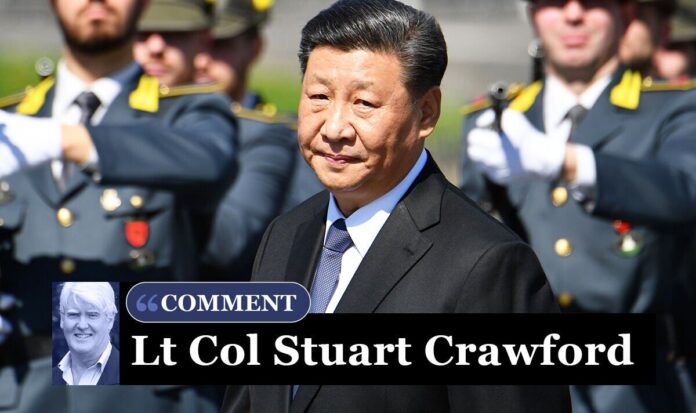China’s leader Xi Jinping (Image: Getty) The UK parliament’s Intelligence and Security Committee (ISC) has just published its report on China. It has its origins in a previous inquiry by the Committee into whether the Chinese company Huawei should be allowed to supply equipment for Britain’s 5G telecommunications network, with the prime consideration here being our seeming over-reliance on Chinese technology. The ISC inquiry continued thereafter and considered the nature of the threat more broadly. This new report is the result of the Committee’s further work and has been split into two parts. Part one considers the overall intelligence threat from China to the UK and the Government’s response to that threat. Part two looks at case studies on the threat to three specific areas; academia, industry and technology, and civil nuclear energy. Let’s look at both consecutively. It’s clear from Part One that the ISC considers the intelligence threat presented by China to be considerable. China’s ambition and capability have allowed it entry to every sector of British life, and Chinese money has flooded the UK. China probably has the largest state intelligence apparatus in the world –even bigger than Russia ‘s – and presents a challenge to its adversaries. The problem is exacerbated by China’s holistic approach. This means in effect that Chinese state-owned and non-state-owned companies, as well as academic and cultural establishments and ordinary Chinese citizens, ‘are liable to be (willingly or unwillingly) co-opted into espionage and interference operations overseas’. So Chinese influence is all-pervasive and its tentacles have penetrated all aspects of life in the UK and other countries. Accordingly, the obvious question is what is Britain doing to counter the threat and limit the spread of Chinese influence and propaganda? Sadly the answer seems to be ‘not enough’; at least that’s the ISC’s point of view. The Government says its response is ‘robust’ and ‘clear-eyed’ but they would say that, wouldn’t they? (the ‘Mandy Rice-Davies response’.) Others are not so sure and were rather less complimentary. Some expert commentators felt very strongly that the UK did not really have any strategy on how to deal with China, and that it was failing to deploy a ‘whole-of-government’ approach when countering the threat from China. Such action that has been taken by Britain’s security and intelligence agencies tends to focus on China’s ‘covert’ activity in the UK, says the report, noting that historically China has not received as much attention from them as, say, Russia has. The ISC says the UK is now struggling to understand and counter China’s ‘whole-of-state’ threat. It goes on further to say that up until now Government’s focus has been dominated by short-term or acute threats. It recommends that the Government adopts a longer-term planning cycle with regards to the future security of the UK if it is to face Chinese ambitions. The dangers of doing too little too late are too obvious and significant to be ignored. As the report states, ‘For a long-term strategy on China – thinking 10, 15, 20 years ahead – the Government needs to plan for it and commit to it now: the UK is severely handicapped by the short-termist approach currently being taken.’ So much for Part One of the report. The second part consists of three case studies, of which the one looking at Britain’s academic sector is of most interest to me. I have to confess that I am one of those awful people who sent their kids to private school (or public school if you prefer, but that’s a daft term) and was well aware years ago of a marked influx of Chinese pupils. For Britain’s private schools this is now a major revenue stream. Indeed, many of our hallowed institutions have opened satellite operations across Asia and in China itself. No names, no packdrill, but it’s easy enough to find out who they are. But it is in our universities that the influx of Chinese students has had its major impact. Here China seeks to control the narrative about China within British universities by exerting its influence over institutions, individual academics, and Chinese students, and by obtaining intellectual property (IP) by directing or stealing academic research to add directly to Chinese expertise. The ISC considers that the UK academic sector has not received sufficient advice on, or protection from, either axis. Again, to quote directly from is report: ‘This must change: there must be an effective cross-government approach to Academia, with clear responsibility and accountability for countering this multifaceted threat. In the meantime, China is on hand to collect – and exploit – all that the UK’s best and brightest achieve as the UK knowingly lets it fall between the cracks.’ The problem is, as ever, competing priorities for funds. Which sector will be raided to provide the required finances; defence, the NHS, education? I don’t know the answer, but in the finest traditions of British commentary I will say that ‘something must be done’, and quickly. Lt Col Stuart Crawford is a defence analyst and former army officer. Sign up for his podcasts and newsletters at www.DefenceReview.uk


